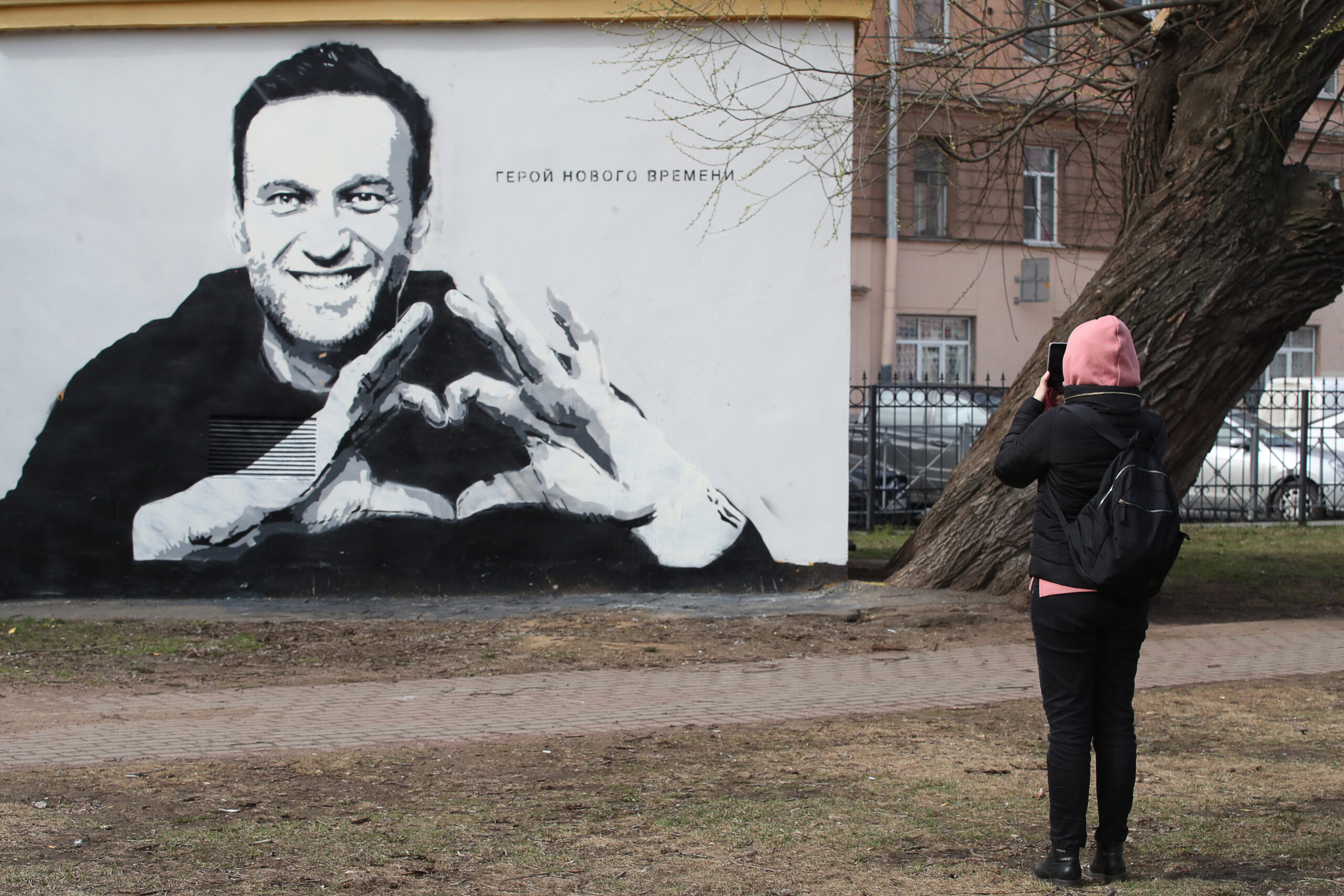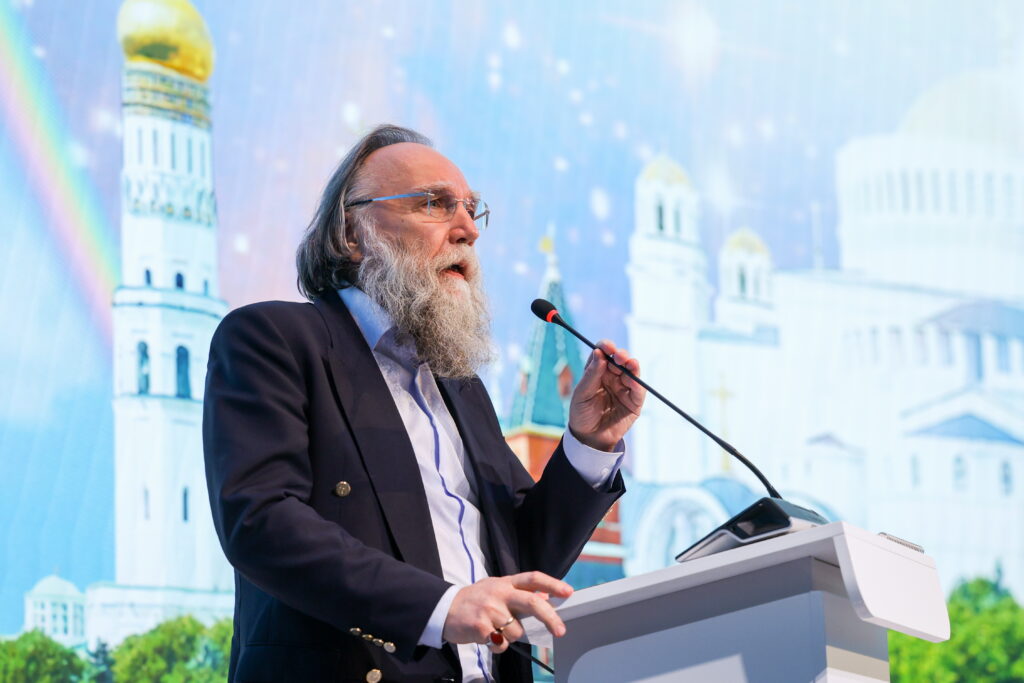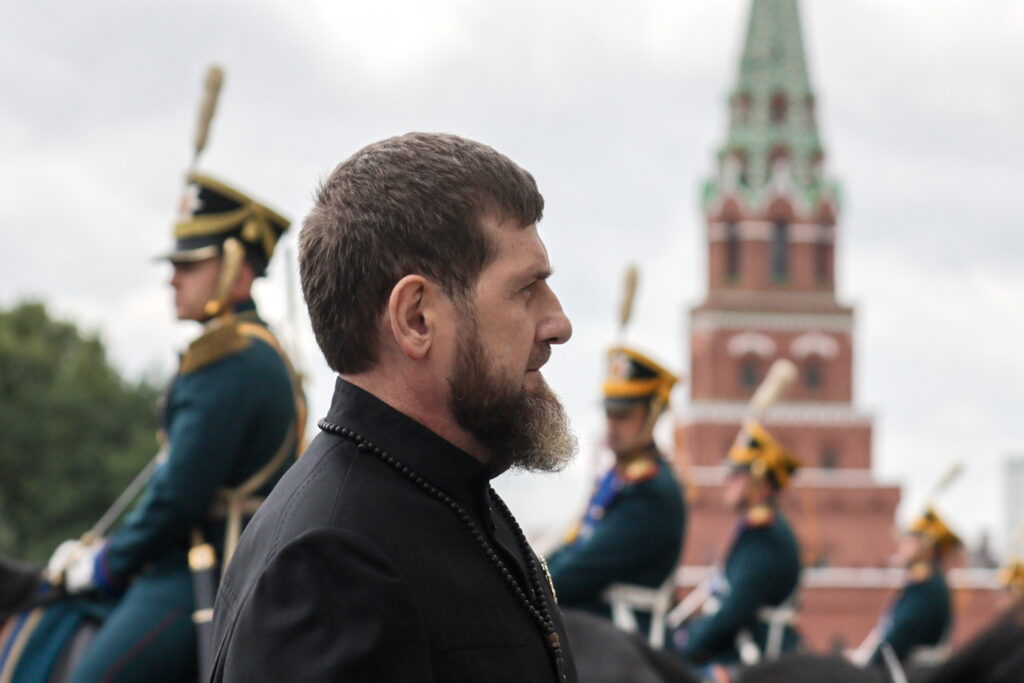Before the start of Russia’s full-scale invasion of Ukraine, the organizations created by Alexey Navalny were major players in Russian opposition politics. It is hardly surprising, then, that in 2021 the Russian authorities declared Navalny’s headquarters and his Anti-Corruption Foundation (ACF) to be extremist organizations and deployed their entire repressive apparatus to crush them. Since then, neither the leaders nor the activists of these organizations have been able to work openly in Russia. The key figures of ACF is currently in exile, some activists are in Russian prisons, and some have been forcibly expelled from the country. Alexey Navalny was assassinated. The remaining free supporters of the politician try to conduct political activities from exile. In this article we use data from 390 in-depth interviews conducted with Russians who left the Russian Federation after February 24, 2022 in order to understand their attitudes toward the organization that still claims for itself a leading role in the opposition movement.
The results of the analysis of the interviews show a marked disappointment with the activities of Alexey Navalny’s team and, in particular, with the Anti-Corruption Foundation. While there is unanimous sympathy for the figure of Navalny, the assessments of the work of the ACF are mostly critical. The most common criticism of the Anti-Corruption Foundation is its unwillingness to communicate with other opposition groups and its radical, uncompromising stance. In addition, respondents note that ACF leaders lack a clear vision of the political reforms that Russia needs to pursue after the end of the current dictatorship, and also point to the team’s excessive emphasis on and preoccupation with investigative and blogging activities.
Support for the ACF among Russian emigrants: what is happening and why?
After February 2022, hundreds of thousands of Russians have left the country. Many of those who emigrated were supporters of Alexey Navalny and his ACF, or at least supported their initiatives. For example, more than 90% of emigrants surveyed in 2022 knew what «smart voting» was and had probably followed its recommendations. It would not be an exaggeration to say that Navalny’s loyal supporters who found themselves outside Russia remained loyal to the structures he had created. At the same time, in a series of in-depth interviews conducted with Russian emigrants in the summer and fall of 2023, we recorded their disappointment with the ACF’s activities. Our data do not allow us to measure ACF’s «rating», but they give us an idea of the main areas of criticism of this organization.
Before describing the results of the analysis, two disclaimers are in order. First, the interviews were conducted between March and December 2023, that is to say before Alexey Navalny’s murder in an Arctic penal colony. Second, even those interviewees who criticized ACF acknowledged Navalny’s merits as a person. As one interviewee noted, «Alexey Navalny’s structure still exists here. But I have to be honest, after the [start of the full-scale] war I think… It’s not that they have lost the place they used to have in Russian society, but in general, somehow everything has changed a lot. At the same time, Navalny himself, of course… probably… remains such an unquestionable moral authority and reference point» (Georgia, female, 24 years old, interviewed on May 24, 2023). Another émigré notes: «We absolutely support Navalny. We do. But Navalny is not the ACF. To be honest, lately I have been having a lot of questions about the ACF.» (Georgia, female, 30 years old, interviewed on July 2, 2023).
The origins of disillusionment
Why do some of Navalny’s supporters become disillusioned with the ACF? We can speak of a general disillusionment with the opposition and a loss of faith in political change at home, as well as the consequences of criticism voiced by alternative political projects such as those led by Mikhail Khodorkovsky or Maxim Katz. Finally, one should not underestimate the role of criticism articulated by Ukrainian and pro-Ukrainian figures who command the respect of some Russian emigrants.
According to the results of the analysis of the interview series, the main reasons for the growing disillusionment in the eyes of the informants have to do with the ACF’s unwillingness to cooperate with other opposition groups and the organization’s unwillingness to compromise. The lack of vision for political reform on the part of the ACF leadership and the overemphasis on investigative and blogging activities are also sources of discontent. Many informants tend to compare the latter to propaganda «simply with the opposite kind of message.»
One of the main sources of frustration is the perception of the ACF as a «radical» organization. Emigrants note that the ACF oversimplifies reality, presenting it as black and white, without shades and nuances:
- «In general, I used to like what Navalny’s team was doing, but at a certain point… . I don’t know, it’s as if they also started this line, dividing the world into the good guys and the bad guys. And it’s just not working for me.» (Kazakhstan, female, 26 years old, interviewed on July 31, 2023).
- «Well, yes, I have some questions for Navalny and his ACF… Yeah, questions about their — how do I put it? — overblown categorical, all-or-nothing mentality. I like some oppositionists better precisely because of the soundness of their position and the lack of, how shall I put it… the word slipped my mind… black-and-white, dogmatic judgments. [Some opposition figures who I like] understand that even in Nazi Germany, when [the regime collapsed], a very large proportion of officials who had worked under the Nazis — they kept their jobs, well, simply because there was nowhere to get a new population, [new people to replace them]» (Kazakhstan, male, 46 years old, interviewed on December 12, 2023).
According to our interviewees, this makes it difficult to attract new supporters and causes resentment among those who seek a more balanced and constructive approach. Many emigrants believe that the ACF’s communication style resembles propaganda. As one interviewee noted, the ACF is now «doing propaganda from the other camp» (Georgia, male, age 29, interviewed on September 22−20). This gives the impression that the ACF is not a neutral source of information, which leads to mistrust and suspicion.
The lack of a clear vision for the future and a plan of action is another line of criticism. As one respondent noted, «the ACF does not have a concrete program of how and what will happen if they come to power» (Kazakhstan, male, 34 years old, interviewed on 6 June 2023). Some noted that they were put off by rhetoric that oversimplifies the situation in Russia.
The ACF is often accused of being «confrontational» and «unconstructive» toward other opposition groups and activists. Many expatriates believe that instead of working with other oppositionists to achieve a common goal, the ACF is busy criticizing others and stirring conflicts. As one respondent noted, «Navalny’s team is busy exploiting his name instead of joining forces with other opposition forces» (Georgia, female, 30 years old, interviewed on June 22−20). Given that our field studies coincided with the discussion of a potential unified coalition within the Russian opposition circles initiated by Maxim Katz, it cannot be ruled out that these sentiments have since subsided. It should be noted, however, that the demand for unification, or at least a unified platform and refusal to engage into conflict is very strong among Russian emigrants.
— «I’ve heard the position that goes like: „Guys, we might have disagreements, but let’s put them aside. Now we have more important problems to deal with, let’s solve them first, and then we’ll see.“ I heard this position from Ilya Yashin, who is now in prison. I heard it from Maxim Katz. I don’t remember anyone else expressing it. Yet this is the most appropriate position that is needed now. And what’s more, I realize that objectively speaking, there is now one super player in this emigrant opposition, in this movement: it’s the Anti-Corruption Foundation, which is in a super-legitimate position for unification of opposition. If these guys had set a goal to unite everyone with a positive agenda and develop a program of change, they would have succeeded. But these same people are just busy insulting others as much as possible» (Armenia, male, 35 years old, interviewed on June 2, 2023).
— Well, you shouldn’t fight among your own people and do it in public. What’s the point? Let’s make some damn declaration that we’re going to tear each other to pieces in some internal chat room and at least stick to a common line in public. Well, [the constant infighting] in public certainly doesn’t help anyone. No matter what they say, even the ACF that I hold in high esteem and have participated in their «clever voting» […] Like «we do our thing, and you do your thing». What the hell is going on? Oh, my God. I am at a loss for words, because they cannot be serious." (Turkey, male, 58 years old, interviewed on June 3, 2023).
Anti-corruption investigations have long been at the core of the ACF’s activities, but many emigrants believe that this agenda is outdated and irrelevant. They believe that corruption is no longer the main issue and that the ACF should focus its work on other problems. As one participant noted, «the ACF’s anti-corruption investigations no longer have the value they used to have» (Kazakhstan, male, 41 years old, interviewed on July 17, 2023). Some informants believe that the organization focuses too much on investigations and publishing materials, but does not offer real solutions to improve the situation. According to one interviewee, «ACF looks more like a media platform than a political force» (Georgia, male, 25 years old, interviewed on July 3, 2023). This reduces the credibility of the ACF and raises doubts about its ability to bring about real change.
Finally, some Russian emigrants express dissatisfaction with the ACF’s attitude toward them. They believe that the organization ignores their interests and problems, offers no support, and does not consider them part of its audience. As one of the respondents noted, «the attitude of the ACF to Russians who have left the country greatly undermines my support for them» (Georgia, female, 32 years old, interviewed on October 10, 2023). Many emigrants criticize the ACF for its lack of engagement with Russian emigrants and their initiatives. They believe that the organization should be more open to dialogue and cooperation with emigrants in order to strengthen its position and expand its audience.
Is the ACF recognized and trusted in Russia?
In June 2024, we conducted a representative survey of Russians (living in Russia) in which we offered respondents a list of names of political figures to assess whether or not and how much they are recognized and trusted by the people. There is no shortage of criticism regarding the legitimacy and reliability of sociological surveys conducted in Russia during the war, but there is also evidence that preference falsification can be partially accounted for, and some opposition-minded respondents even regard participation in polls as a form of political participation or protest. We also take into account that telephone polling may be seen as riskier than street or online polling. To strike a balance, questions about the opposition were supplemented with questions about the recognition and popularity of pro-regime figures (e.g., Defense Minister Andrey Belousov or Deputy Chairman of the Security Council Dmitry Medvedev).
In the bar chart below, we have presented the figures that Russian citizens may consider to be oppositional in one way or another. We have designated Zyuganov as a reference category as he is in fact part of the establishment and a co-opted figure, but in the eyes of some Russians may still be seen as a member of the «systemic opposition». Maria Pevchykh and Yulia Navalnaya are less recognizable than Zyuganov and Khodorkovsky. However, Yulia Navalnaya is much better known than Boris Nadezhdin. Thirty percent of those polled know about Yulia Navalnaya, and another 42% have heard something about her. Maria Pevchykh is known by 9% of the respondents and 15% have heard something about her. Awareness is an important asset, but it is not the same as trust. Of those who know Maria Pevchykh, 28% trust her, 64% do not trust her, and 8% found it difficult to answer. Yulia Navalna is trusted by 16.5% of those who know about her activities (75% do not trust her and 9% found it difficult to answer).
At the same time, it is impossible to ask questions about the ACF in today’s Russia, since the authorities have labeled the foundation an extremist organization. And, of course, the ACF’s ratings should not be considered quasi-electoral ratings. They should be interpreted as a conservative assessment of the extent to which the opposition groups reach their audience.

Fig. 1. Recognizability of figures of the systemic and non-systemic opposition
N = 1,603. CATI collection method. Conducted on June 13−24, 2024.
In general, the findings about the level of support for the ACF among Russian emigrants and residents of the country paint a complex picture. Emigrants who used to actively support the ACF are now expressing growing disillusionment with the organization’s activities. This is due to the perception of the ACF as an isolationist and uncooperative structure that sticks to its old tactics, such as anti-corruption investigations, to the detriment of more pressing political issues. It is conceivable that some of the reasons outlined above may also be of concern to those who have remained in Russia.
At the same time, polls in Russia show that the names of the ACF’s key figures, such as Yulia Navalnaya and Maria Pevchykh are familiar to the public. Despite the active propaganda against the ACF, 30% of Russians have heard of Yulia Navalnaya and 9% know of Maria Pevchykh. This is not much, but given the current context, the polls themselves serve more as an indicator that there are still those in the country who are not afraid to talk about the «non-systemic» opposition despite the repressions.











